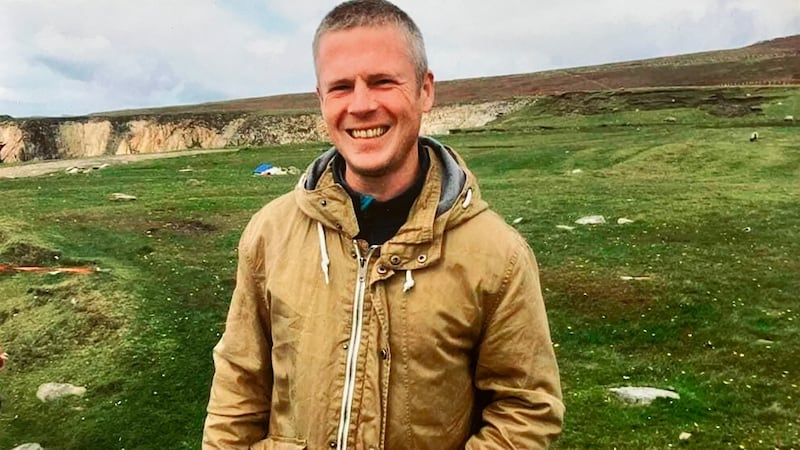Simon Harris is, to use the internet parlance, extremely online.
On his TikTok, where he has 98,200 followers and 1.9 million likes, he has posted 290 videos, including 32 so far this year – ramping up to roughly two a day since securing the nomination for Fine Gael party leader. He has 181,000 followers on Instagram and 1,721 permanent posts and reels, not including any stories that disappear after 24 hours. On X, he has almost a quarter of a million followers.
And yet, for all that presence, all that posting and engaging, it’s not easy to discern where he stands on the big issues.
His TikTok output mostly involves video selfies, although he occasionally departs from the template – his 2021 Christmas butternut squash soup recipe (58,500 plays) being a memorable example. Recently, as his backroom team swelled, his videos have become more ambitious: slick compilations of him out and about, pressing the flesh. But Harris knows what his audience likes, and what they seem to like is a lot of Harris, the fewer production flourishes the better. Here’s Simon in a white shirt and red tie, against flocked wallpaper. Simon in a navy sweatshirt, talking earnestly about ... something. Simon “just arriving here in work in what they call the ministerial corridor” he says, in a charming manner that lets you know he can’t quite believe it either. Simon doing a TikTok dance with schoolchildren. Simon’s completed Wordle. Simon promising “no bull, no spin, just follow me, come here, get the info, be kept up to date, ask me your questions”. On Instagram, the platform where he first emerged as a surprise social media star during the early days of the pandemic, the video selfies and days-in-the-life are interspersed with the odd photo of his dog or his children – and a feelgood aphorism or two.
As to what he actually stands for, other than boundless self-belief and #positivevibes, his prodigious social media output offers few clues. Like the most successful social media influencers, Harris has a Rorschach quality. His followers can project on to him whatever persona they choose. He expertly conveys the sense that while he doesn’t take himself too seriously, you and your concerns are matters of grave importance. He signs off with a familiar “Night” or “I’ll talk to you soon”.
During Covid, he posted nightly live videos that simultaneously conveyed both a leader in control (even after he was no longer actually in control of the Health brief) and a guy just muddling through like the rest of us. “Miss random catchups. Miss spontaneity. Miss closeness. But I also know this – those times will come again,” he said in January 2021. His followers couldn’t seem to get enough. “Thank you Simon. You keep me sane in this very eerie lonely time,” wrote one that month. “I think you need to swap places with Leo [smiley face],” said another presciently.
There is a lot to be said for the leader of a country making the effort to meet voters where they are – whether that’s at a mart in Ennis, on TikTok, or adrift in a sea of loneliness and rolling lockdowns. Being hailed as the “TikTok Taoiseach” at a moment the New York Times has declared the year of the first “TikTok election” in the US can hardly be said to be a bad thing.
But just how online should a politician be? Broadcasting to your followers on social media is a relatively low-risk enterprise. The risk comes if you start focusing your attention on what comes back. If most of your life was spent online, you might conclude the latest so-called culture war issues are the things keeping voters up at night: hate speech laws, immigration, puberty blockers for children, the so-called “liberal agenda”. But out in the real world people are still worried about the things they’ve been worried about since the last election. Housing, healthcare and the cost of living, according to last weekend’s Ireland Thinks poll for the Sunday Independent. Immigration is a concern for one in four; 8 per cent are worried about the rise of the far right; one in 20 are bothered about “Government corruption”. There was no consensus either on whether the Government was too liberal or too conservative, or on hate speech or trans rights issues: a lot disagreed, a lot agreed, a lot were unsure. Voters, in other words, are just as mercurial and divided as you’d expect them to be in a healthy democracy.
A very online Taoiseach has to be careful not to see the world through a social media filter or to run the country as a series of viral moments. Promising to build 50,000 houses a year will get you likes on TikTok – but at some point you’ll have to say how, beyond “moving mountains” or “hitting the ground running”.
[ Simon Harris: The five career moves that led him to the taoiseach’s officeOpens in new window ]
Harris is a canny politician, an empathetic communicator who is, so far, much better at social media than he is at big podium set pieces. His social media skills have conferred on him an air of mystique among an older generation of politicians, who see the online world as a realm between nuclear physics and witchcraft. But voters are less likely to be wowed.
It was telling this week that on his first day as Taoiseach, he didn’t have time for Leaders’ Questions, leaving him open to the inevitable flaying from the Opposition. But there he was posting a video on TikTok, and two on Instagram, and busily retweeting on X. Will the public have patience for a leader who always seems to have one eye on his follower count, who has the air of being, as the sociologist Sherry Turkle puts it, “forever elsewhere”?













